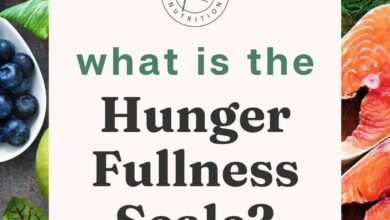Bloat Less When Dining Out with These Tips and Tricks

There’s something so ritualistic about eating out at a restaurant. Often a place for gathering and connection, restaurants offer a neutral space that allows us to come together and enjoy each other’s company while indulging in a delicious meal without the effort of cooking and cleaning. But, as much as we love dining out, it often leaves us feeling the need to unbutton our pants on the way home, thanks to the inevitable bloating we experience post-meal.
In this article we bring you the why behind bloating when dining out, how to combat it and what tips and tricks you can use when navigating the menu for a less “bloated” experience.
Does Eating Out Cause Bloating?
While we can experience bloat while eating both at home and at our favorite restaurants, dining out is more likely to result in bloating. “Some of the main culprits of bloating when dining out include swallowing too much air when chewing your food,” Brittany Werner, MS, RDN, LDN, the director of coaching at Working Against Gravity tells us. “This often occurs when eating too quickly or not chewing food properly before swallowing.” Swallowing air or not chewing food fully happens more often while eating out because we are often enjoying meals with family, friends, and colleagues and, therefore, might be distracted while we eat. “If you’re distracted, talking, and not fully focused on eating, you’re more likely to speed up eating and increase the amount of air you take in, leading to the increased risk of bloating,” Werner adds.
Socializing while eating isn’t the only reason why some are more likely to experience bloating while dining out. In addition to a lack of mindful eating, Werner says dining out might result in overeating, which can also trigger symptoms of bloating, including discomfort and an expanded stomach area. And some of the foods on the menu can also cause bloating for many. “Foods that are high in sugar or saturated fats or known gas producers like cruciferous vegetables, beans, and dairy products are the biggest culprits,” says Werner.
How Do You Bloat less When Eating Out?
Dining out can lead to bloating, but it’s entirely possible to eat out at your favorite restaurant without digestion discomfort. Follow these expert-approved tips for reducing bloating while eating at a restaurant and at home.
Practice Mindful Eating
When dining out, it might be a little hard to eat in complete silence and avoid the inevitable air consumption that Werner mentioned. However, it’s still possible to eat more mindfully and decrease the chances of bloating as a result. Consider taking a bite as someone else is talking so that you can chew while listening and then join the conversation once you swallow your food. Also, try to eat slowly and fully chew your food before swallowing to support optimal digestion.
Portion Sizes
According to Werner, portion size is one common reason people experience stomach bloat while dining out. And, thanks to larger portions often served at restaurants, we are sometimes prone to overeating, which can lead to stomach bloating. “To play it safe and avoid your risk of feeling bloated, aim to avoid large portion sizes,” says Werner. One of the easiest ways to do this is to split appetizers and entrees with another person. If you’re alone or don’t want to share, you can also reach for a side plate and dish out a portion size that is similar to what you would eat at home, then ask for a box for the rest to have as leftovers. If the menu allows for it, you can also order a few sides instead of one large entree.
Play It Safe
When ordering out, Werner says to also “stick to foods that you know will work well for your stomach.” This is especially important if you have any known sensitivities or intolerances, as consuming foods that aren’t compatible with your stomach can lead to bloating and other digestive issues. “This is not a time to try new foods or foods that haven’t worked well for you in the past,” Werner adds.
Avoid Gas-Causing Foods
If you’re concerned about stomach bloating, it’s also worth avoiding gas-causing foods that can often lead to bloating and other digestive discomfort. “Stay clear of large amounts of beans and raw cruciferous veggies like broccoli and cauliflower,” says Werner.
Eat Light to bloat less
As much as we might want to indulge when eating out, Werner says to try and aim for lighter options if you are concerned about bloating, as restaurant meals are typically fattier than our at-home versions. “This will save you on fat grams and help reduce any potential gastrointestinal distress for post-meal bloating,” she explains. With that said, you can always make tweaks to your menu selection to make it a more bloat-free option. “Some examples could be opting for the grilled version of your protein instead of the fried version, getting your salad dressing on the side, or skipping the cheese on your salad or burger,” Werner explains.
If you do wish to try a good that is higher in fat or added sugars, Werner says to aim for smaller portion sizes and take the rest home or share it with the table to divide it up (and, ultimately, consume less of that heavy food).
Stay Hydrated
Drinking plenty of water throughout the day is vital for proper digestion and, according to Werner, can lower the risk of constipation, which can often result in bloating. While it’s important to drink water throughout the day, don’t forget about that H2O at dinner, and be sure to hydrate before and after your meal.
Avoid Carbonated Beverages
While dining out, we might be more inclined to order carbonated drinks, including soda, seltzer, champagne, or beer. If you wish to avoid bloating while dining out, it’s best to keep these beverages off the table as they can create extra air (similar to swallowing air while talking and chewing) and, therefore, result in bloat.
Take a Digestive Enzyme
If you are concerned about bloating while dining out and want a little extra support to avoid discomfort, consider taking a digestive enzyme such as the HUM Nutrition Flatter Me supplement. This digestion supplement features 18 full-spectrum digestive enzymes plus peppermint, ginger, and fennel seed and is specifically formulated to promote healthy digestion while also minimizing symptoms of bloating. We love this supplement because it’s also super easy to incorporate into your dinner plans—all you have to do is take one capsule before your meal.
The Bloat (Less) Takeaway
Bloating can happen anywhere—but it’s more likely to happen while dining out at a restaurant. And, while some of the menu items can be the culprit (especially since restaurant foods tend to be heavier than their at-home counterparts), it’s actually the social aspect of dining out that can result in digestion discomfort. When we eat while catching up with friends, we are often too distracted to practice mindful eating and, as a result, might not finish chewing our food before swallowing. On top of that, talking can result in lots of air consumption, and all of that air ends up in our system, leading to bloating. Nonetheless, having a great night out on the town is entirely possible without the risk of bloating looming over your meals. With some expert-approved tips for reducing bloating (and some help from digestive enzyme supplements like the HUM Nutrition Flatter Me), you can dine out without digestive discomfort.
Source link
#Bloat #Dining #Tips #Tricks



